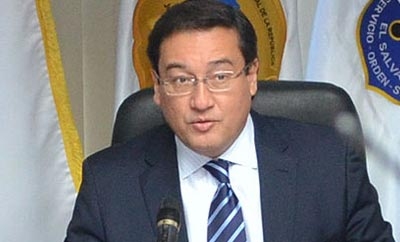El Salvador’s attorney general struggled to explain why his country had not brought charges against alleged Salvadoran cartel bosses designated as drug kingpins by the United States, offering an insight into the complex relationship between the two countries.
Speaking to La Prensa Grafica, Attorney General Luis Martinez said he did not know why the United States had listed alleged leaders of El Salvador’s Texis Cartel as drug traffickers while in their home country they are only being investigated for financial crimes. He added that Salvadoran investigators did not have access to the information on which the US authorities based this designation.
According to Martinez, El Salvador’s year-long investigation into the Texis Cartel has yet to reveal evidence of any connection between the group and Jose Adan Salazar or Juan Umaña Samayoa — both widely believed to be founding members and leaders of the cartel.
Martinez also denied any knowledge of why the US has added Salvadoran criminals as drug traffickers such as Jose Misael Cisneros, alias “Medio Millon” and Moris Alexander Bercian Machon, alias “El Barney,” to its “Kingpin List,” or whether the US authorities consulted with their Salvadoran counterparts before taking the decision.
“These are decisions that the US government takes, not us,” he said. “If they need some level of information [from us] they do it through the respective legal channels. But until now we haven’t had any information from them, and neither have they requested information from us.”
InSight Crime Analysis
The interview with Martinez highlights the sometimes complicated relationship between the US authorities and the governments of Latin American countries whose criminals they investigate.
There are numerous reasons why the US government may add alleged criminals to its “Kingpin List” and designate them as drug traffickers while the Salvadoran government has to be more reserved. Firstly, the list sanctions alleged criminals with financial restrictions, but is not a judicial process, and so the burden of proof is substantially lower.
SEE ALSO:Corruption in El Salvador: Politicians, Police and Transportistas
In addition, if the US authorities were building a case for extradition of such targets, bringing similar charges against them in El Salvador could complicate the process. If criminals stay in El Salvador, it could reduce the chances of bringing them to justice, due to the weaknesses in the country’s judicial system.
It is possible that Martinez’s pleas of ignorance as to the information held by US authorities may be disingenuous. However, if it is even partly true, it hints at a worrying lack of coordination between two key security allies.

